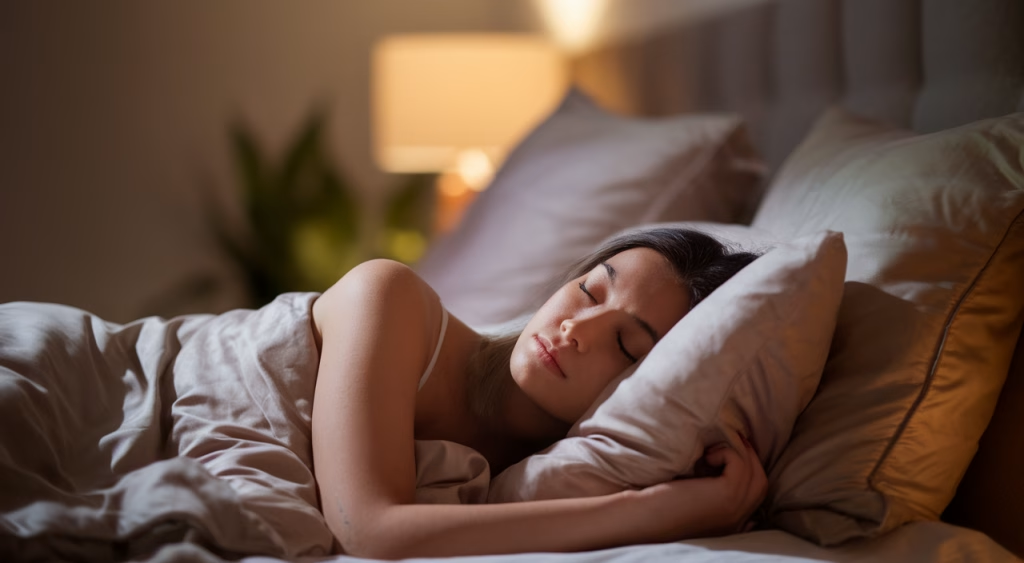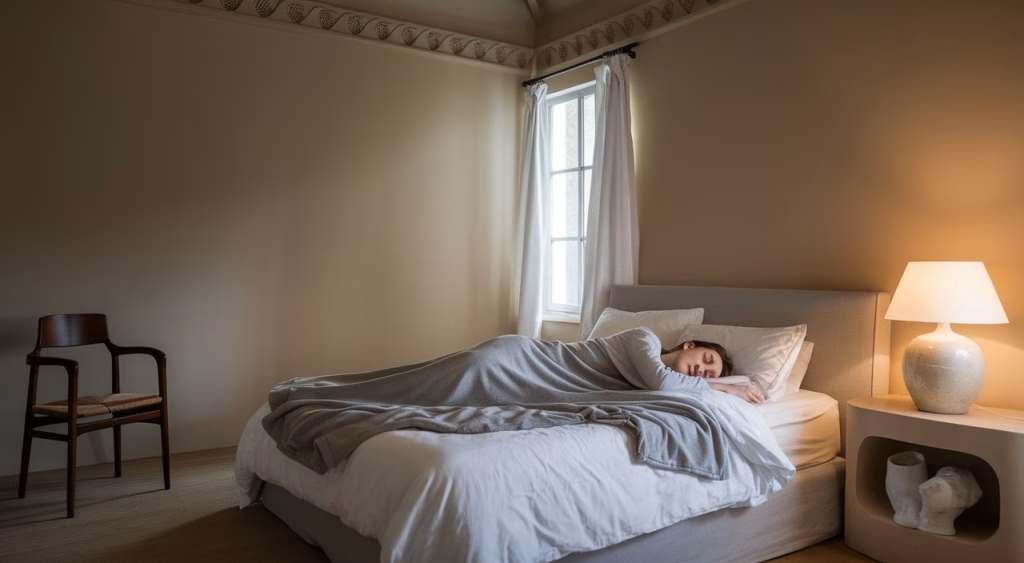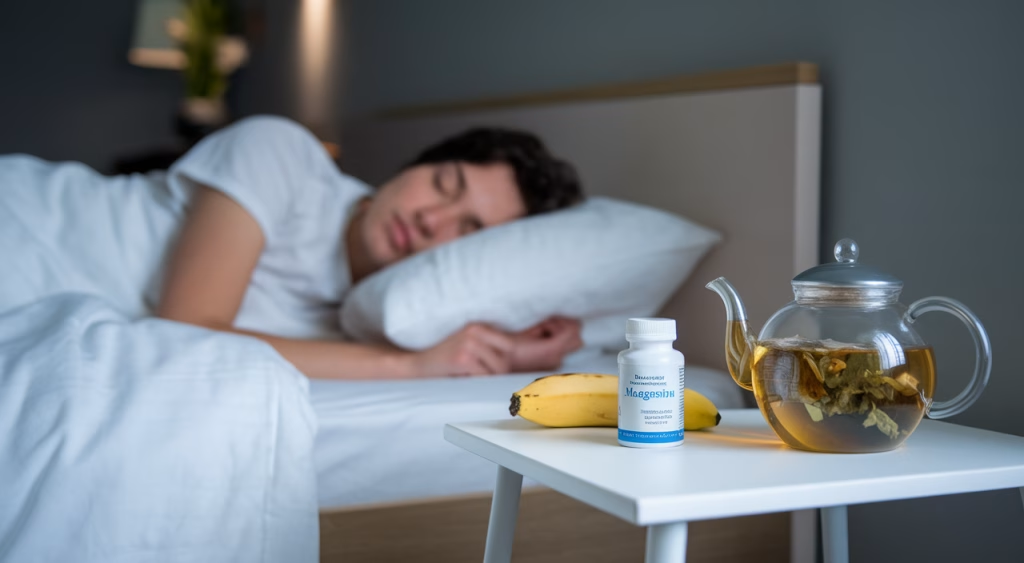What’s the Connection Between Female Sex Hormones and Obstructive Sleep Apnea?
Recent research reveals a strong link between female sex hormones and obstructive sleep apnea (OSA), especially among women going through menopause or with underlying hormonal imbalances. Hormones like estrogen and progesterone directly influence how well you breathe during sleep—affecting airway stability, muscle tone, and even oxygen regulation. For many women, hormonal shifts bring unexpected sleep challenges that go far beyond simple fatigue.
TL;DR Summary
- Hormonal shifts can dramatically increase sleep apnea risk in women, particularly during menopause when estrogen levels plummet.
- Estrogen and progesterone support airway muscle tone and breathing stability — their decline can trigger snoring or full OSA episodes.
- OSA symptoms in women are often misdiagnosed; they frequently differ from classic male symptoms like loud snoring.
- Hormone imbalance and snoring create a vicious cycle, especially when combined with fatigue, mood swings, or chronic insomnia.
- Balancing hormones strategically may help prevent or reduce sleep apnea symptoms in many women.
Impact of Female Sex Hormones on Sleep Health
Your sleep quality isn’t just about your bedtime routine or stress levels — your female sex hormones and sleep disorders are intimately connected. Estrogen, progesterone, and even testosterone coordinate critical systems in your body, including respiratory function and REM sleep regulation. During pivotal life stages like menstruation, pregnancy, and menopause, dramatic hormonal fluctuations can determine whether your breathing remains steady throughout the night or becomes dangerously disrupted.
Estrogen and Its Role in Sleep Apnea
Estrogen goes far beyond reproductive function — it plays a crucial role in regulating neurotransmitters like serotonin and GABA, which directly influence breathing efficiency and sleep architecture. When estrogen levels drop, especially during menopause, we consistently observe a sharp increase in hormone imbalance and sleep apnea risks.
Lower estrogen levels increase upper airway collapsibility, worsen inflammation in respiratory tissues, and disrupt the neural pathways that control breathing. In practical terms: you might wake up gasping, feel constantly exhausted despite spending hours in bed, or notice that your once-restful sleep now feels fragmented and unsatisfying.
Symptoms of OSA Linked to Hormonal Imbalance
Let’s move beyond the stereotype that sleep apnea only affects overweight men who snore loudly. For women experiencing hormone imbalance and sleep apnea risks, the OSA symptoms in women often manifest as:
- Persistent insomnia or frequent middle-of-the-night awakenings
- Overwhelming daytime fatigue that doesn’t improve with rest
- Throbbing morning headaches that fade throughout the day
- Unpredictable mood swings, anxiety, or depression
- Stubborn weight gain, especially around the midsection
- Brain fog and difficulty concentrating
Do these symptoms sound familiar? They’re frequently dismissed as “normal” hormonal changes when they might actually signal disrupted breathing patterns during sleep. Understanding how female sex hormones and sleep disorders interact helps you advocate for proper testing and treatment.
How Hormone Imbalance Affects Sleep Quality
Have you ever wondered why your sleep completely transformed during midlife — despite maintaining the same healthy habits? That’s the profound impact of hormone imbalance and sleep apnea risks at work. Progesterone and estrogen function as a dynamic duo in airway control, body temperature regulation, and deep sleep cycles. When these hormones shift dramatically, your ability to maintain steady breathing overnight can become severely compromised.
Understanding the Link Between Progesterone and Sleep Apnea
Progesterone functions as nature’s respiratory stimulant — actively helping maintain airway patency and promoting steady breathing patterns. During phases of elevated progesterone (such as pregnancy’s second trimester), women often experience remarkably efficient breathing and deeper sleep. However, when progesterone levels crash — whether due to PCOS, menopause, chronic stress, or hormonal contraceptive changes — the respiratory system struggles.
This explains why countless patients report that their snoring or sleep disruption began seemingly “overnight” when their menstrual cycles changed or after discontinuing hormone therapy. The sharp decline in progesterone reduces respiratory drive and allows airway collapse during sleep — the fundamental mechanism behind female sex hormones and obstructive sleep apnea.
Managing Sleep Disorders Through Hormone Regulation
So what concrete steps can you take if you suspect hormone imbalance and snoring are wreaking havoc on your sleep? Comprehensive diagnosis becomes your foundation. This means pursuing a sleep study, detailed hormone panel, and ideally collaborating with a sleep specialist who understands female physiology and hormonal influences on breathing.
Practical Tips to Improve Sleep with Hormonal Imbalance
Here’s what consistently helps women optimize both their hormone levels and sleep architecture:
- Explore targeted hormone therapy: Under expert medical supervision, properly dosed bioidentical estrogen or progesterone therapy can significantly reduce sleep disorder risks and improve OSA symptoms in women.
- Track your cycle and symptoms meticulously: Sleep patterns often mirror hormonal fluctuations — detailed apps or traditional logs can reveal crucial patterns your doctor needs to see.
- Optimize nasal airflow: High-quality nasal strips, positional therapy devices, and bedroom humidifiers reduce breathing resistance and support easier airway function.
- Implement evidence-based sleep hygiene: Eliminate screens 2 hours before bed, maintain consistent sleep-wake times, and invest in blackout curtains and white noise machines.
- Support your adrenal system: Chronic stress depletes hormone production. Regular breathwork, therapy, adaptogenic herbs, and adequate rest help rebalance your entire endocrine system.
Cost Guide: Hormonal Sleep Disorder Solutions
| Treatment Option | Cost (Low-End) | Cost (Mid-Range) | Cost (High-End) |
|---|---|---|---|
| Sleep Study (At-Home or In-Lab) | $150 | $500 | $3,000 |
| Hormone Panel Test | $50 | $150 | $400 |
| Hormone Replacement Therapy | $30/month | $100/month | $300/month |
| CPAP Machine | $250 | $750 | $1,500 |
Final Thought: Connecting the Dots Between Hormones and Sleep
If you’ve been desperately searching for answers to your persistent fatigue, mood changes, or fragmented sleep—and especially if you’re a woman navigating perimenopause or menopause—don’t underestimate the powerful relationship between female sex hormones and obstructive sleep apnea.
Understanding this critical connection reveals the complete picture and opens pathways to comprehensive healing. Whether it’s optimizing hormone levels, strengthening airway support, or finally getting that overdue sleep study, your hormonal health might hold the key to the restful nights you’ve been craving.
Frequently Asked Questions
Can hormone imbalance cause snoring?
Yes, especially in women. Low levels of estrogen and progesterone can reduce airway muscle tone and lead to snoring or even OSA.
What are the most common OSA symptoms in women?
Unlike men, women may not always snore loudly. Instead, they often report fatigue, insomnia, mood fluctuations, morning headaches, and anxiety.
How does estrogen affect sleep quality?
Estrogen influences neurotransmitters like serotonin, stabilizing mood and promoting deeper sleep. Its decline can trigger insomnia and OSA.
Can improving hormones reverse sleep disorders?
While not a cure-all, treating hormonal imbalances can significantly reduce the severity of sleep apnea and improve overall sleep quality.
Who should consider a hormone/sleep assessment?
Women experiencing midlife changes, fatigue, or who suspect OSA symptoms should discuss combined sleep and hormone testing with a provider.
Is it safe to use hormone therapy for better sleep?
When tailored to your needs and monitored by a qualified provider, hormone therapy can be a safe, effective part of sleep disorder management.
Most hormone-linked sleep issues begin in perimenopause (typically around age 40 to 50), but they can affect younger women with endocrine disorders too.





